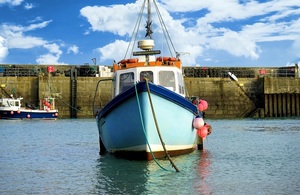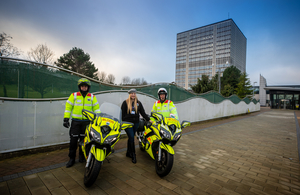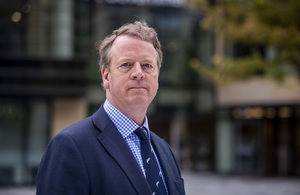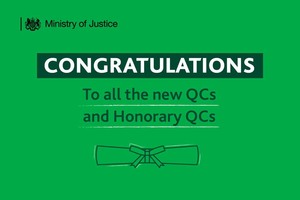The Intellectual Property Office (IPO) has today issued a list of 5 top tips to help consumers stay safe when shopping on social media platforms. This comes as a new study published today by the IPO reveals that deviant social media influencers can exert significant influence over purchasing decisions, swaying 10% of those surveyed to purchase counterfeit goods across a wide range of products.
The study shows that 17% of the participants were ‘knowing buyers’ of counterfeits. Of these, around 70% were aged 16 to 33, generating over three quarters (77%) of demand for these illicit goods. Over half the demand (53%) was generated by ‘habitual buyers’.
Counterfeiters operating on social media often use well-known brand names to draw in consumers. As well as being illegal, the counterfeit goods are often dangerous. Intelligence also shows that the profits may be used to help fund serious and organised crime.
According to the study, the most popular illicit product categories were fashion, accessories, jewellery, and beauty products.
Operation MONTY, a collaborative enforcement campaign coordinated by the National Markets Group for IP Infringement, saw 450 Instagram Trader accounts – hosting more than 15,000 listings of infringing products – taken down in the space of 2 days in November. These rogue vendors offered products including clothing, footwear, tobacco, electrical goods, bags, jewellery, cosmetics, perfumes, electrical goods, phone accessories and copyrighted photographs.
To help consumers stay safe online and know how to spot a fake, the IPO is advising consumers to consider the following:
1) The Seller. Do they look official? Have you bought from this seller before, is the website or platform well known? Does the seller have a returns policy? If you are in doubt, look for a proper online review, not just recommendations from influencers to buy the item.
2) Making Payments. Always beware of retailers asking for payment to be made via bank transfer. Well known credit card providers like Visa or Mastercard, and services like PayPal offer protection to buyers if the goods don’t arrive or are proven to be counterfeit.
3) Your Instincts. Always trust your instincts. Does the item on offer look and feel like an authentic product? Sellers of counterfeits often make spelling mistakes in their descriptions and sometimes on the products themselves, which is an obvious warning sign. Spelling and grammar mistakes can indicate fakes!
4) Safety Markings. The safety standards of counterfeit items are poor and can be unsafe, especially when they are shipped from abroad. Do items – especially toys – have EU and UK safety markings? You should always check for the correct age restrictions and hazard warnings on the packaging.
5) The Price. Whether buying online or in person, always think about the price. Scammers often sell counterfeit goods at discounted prices to make you drop your guard. If the item is significantly cheaper than you’d expect, that’s a good reason for alarm bells to ring. If the price looks too good to be true, it most probably is.
The IPO’s Chief Executive Tim Moss said:
We want to help online shoppers feel safe, which is why we’ve put together some simple tips to know what to look out for and how to spot a fake. Criminal networks are targeting online platforms to deceive consumers into buying counterfeit goods. This undermines legitimate sellers and causes damage to individuals and communities.
We are really pleased to have supported Operation Monty as we continue to work with our partner organisations to raise awareness of these issues issue and disrupt IP crime.
The publication of the IPO’s research, and the recent multi-agency action, have been welcomed by the Anti-Counterfeting Group, a not-for-profit trade association that works to provide a collaborative response to counterfeiting.
Director General of the Anti-Counterfeiting Group, Phil Lewis, said:
The growing trend toward online shopping has not gone unnoticed by criminals who deal in counterfeit goods, and see reckless social media influencers as a major opportunity to sell dangerous and illegal fake products. Almost all counterfeits contain toxins, dangerous mechanisms or additives, and consumers should always think about the dangers, before buying even the most innocuous-seeming fakes.
Recent operational partnerships have resulted in the removal of almost 500 illicit traders and tens of thousands of listings of counterfeit goods, helping disrupt transnational crime and to protect consumers, businesses and jobs. Remember – if a deal looks too good to be true, it almost certainly is – and could well come with a very nasty and dangerous sting in the tail.
Notes to editor:
-
the IPO has commissioned multiple pieces of research into topics relating to the infringement of intellectual property rights. In addition to the Social Media Influencers research mentioned above, these include the long-established Online Copyright Infringement tracker and the Physical Goods Tracker reports. All 3 pieces of research and further information are published on GOV.UK
-
last year’s Physical Goods tracker report found that a major factor linked to purchasing counterfeits was found to be the perceived quality of counterfeit products. This, along with anecdotal reports from industry of Social Media Influencers (SMIs) endorsing and promoting counterfeit products, led to the commission of a pilot piece of research to look into the effect of endorsements from SMIs on counterfeit purchasing habits
-
the pilot study of SMI endorsement of counterfeit products aims to understand the effect of these endorsements against general counterfeit purchasing behaviour. This study was focused on the primary audience for these complicit influencers, females aged 18-64. The aim of this study was to provide the first levels of insight into the levels, mechanisms, and potential risk factors for these counterfeit endorsements
-
operation MONTY was a collaborative enforcement campaign coordinated by the National Markets Group for IP protection. The National Markets Group for IP protection (NMG) was established in 2008 to provide a forum for a national, co-ordinated, cross-sector approach to tackle the trade in counterfeit and pirated goods. Members include law enforcement, industry and government agencies working collaboratively to reduce the threat to legitimate business and consumers from IP crime. The operation included input from Meta Platforms, Inc. (Meta), UK Intellectual Property Office’s Intelligence Hub, National Trading Standards e-Crime Team and Trading Standards authorities
-
the Anti-Counterfeiting Group (ACG) is a not-for-profit trade association that works with UK, European and international governments and enforcement bodies, to provide a collaborative response to counterfeiting. More information about the ACG and its work can be found on the ACG website
-
the IPO will be publishing a comprehensive infringement strategy in early 2022 which will establish a new, innovative framework through which government, law enforcement and industry will come together to tackle IP crime and infringement. The strategy looks at how we can work more effectively with our partners, both domestically and internationally. Consumer empowerment also plays an important part. We want to make sure consumers are informed and understand the impacts and risks of infringement



